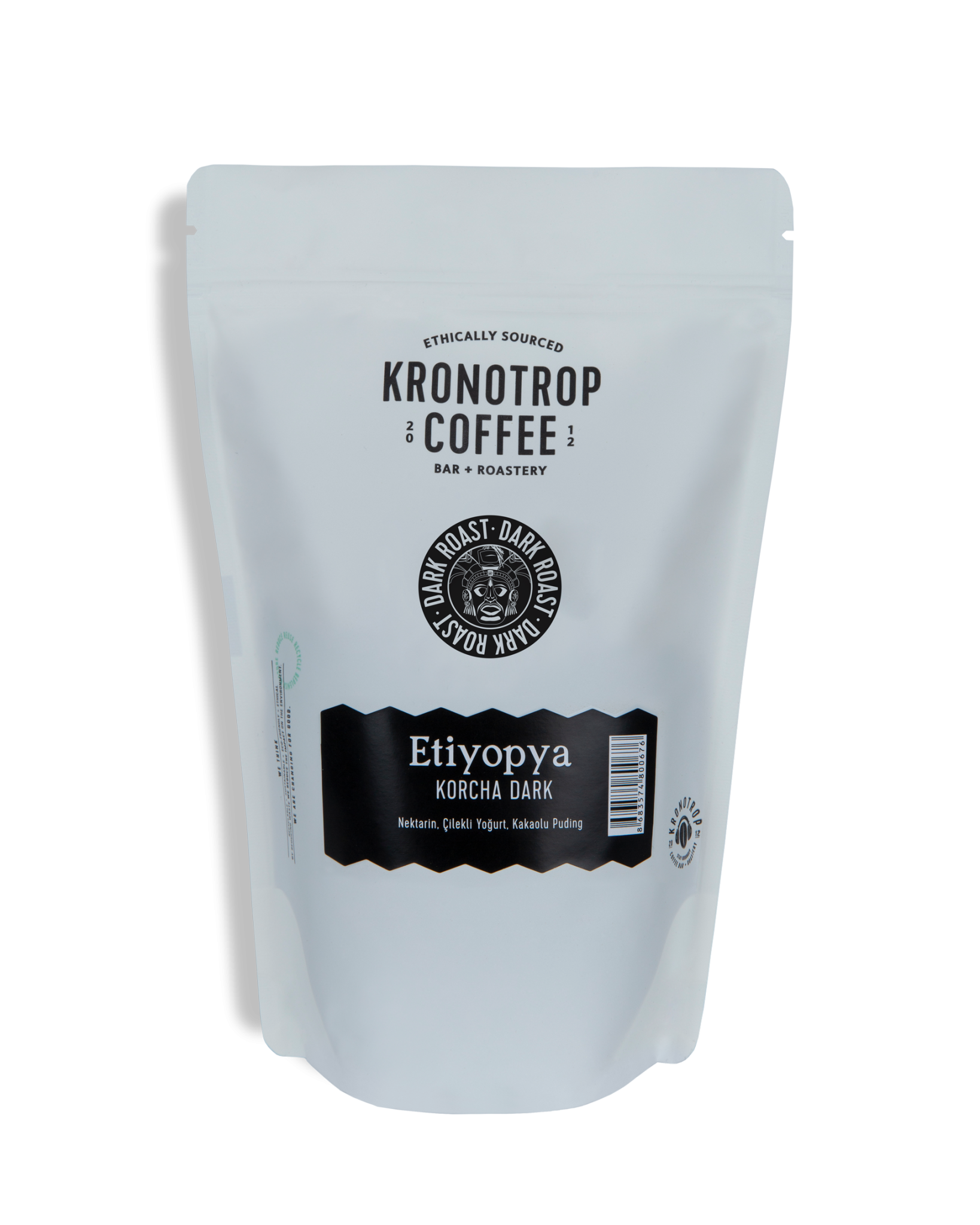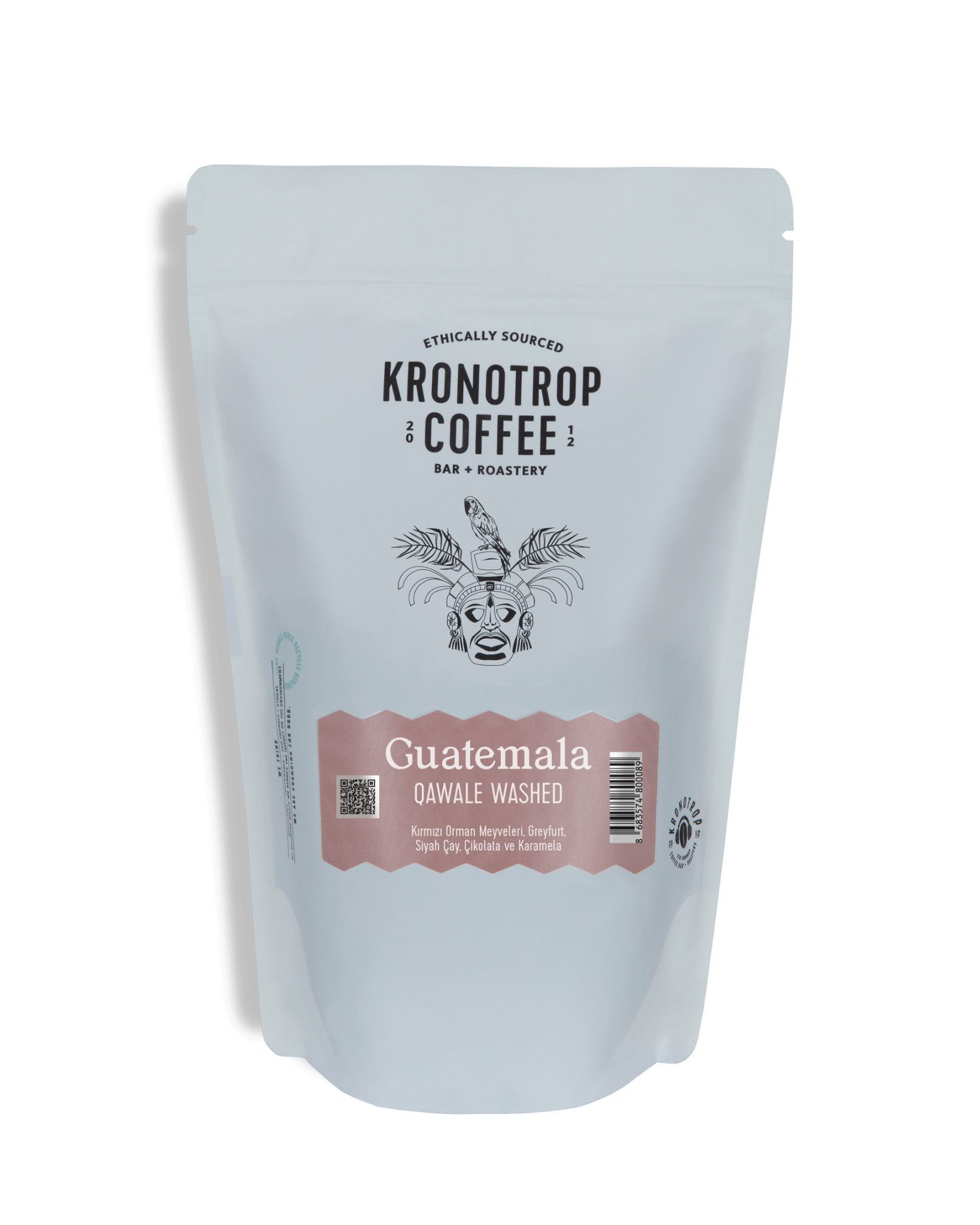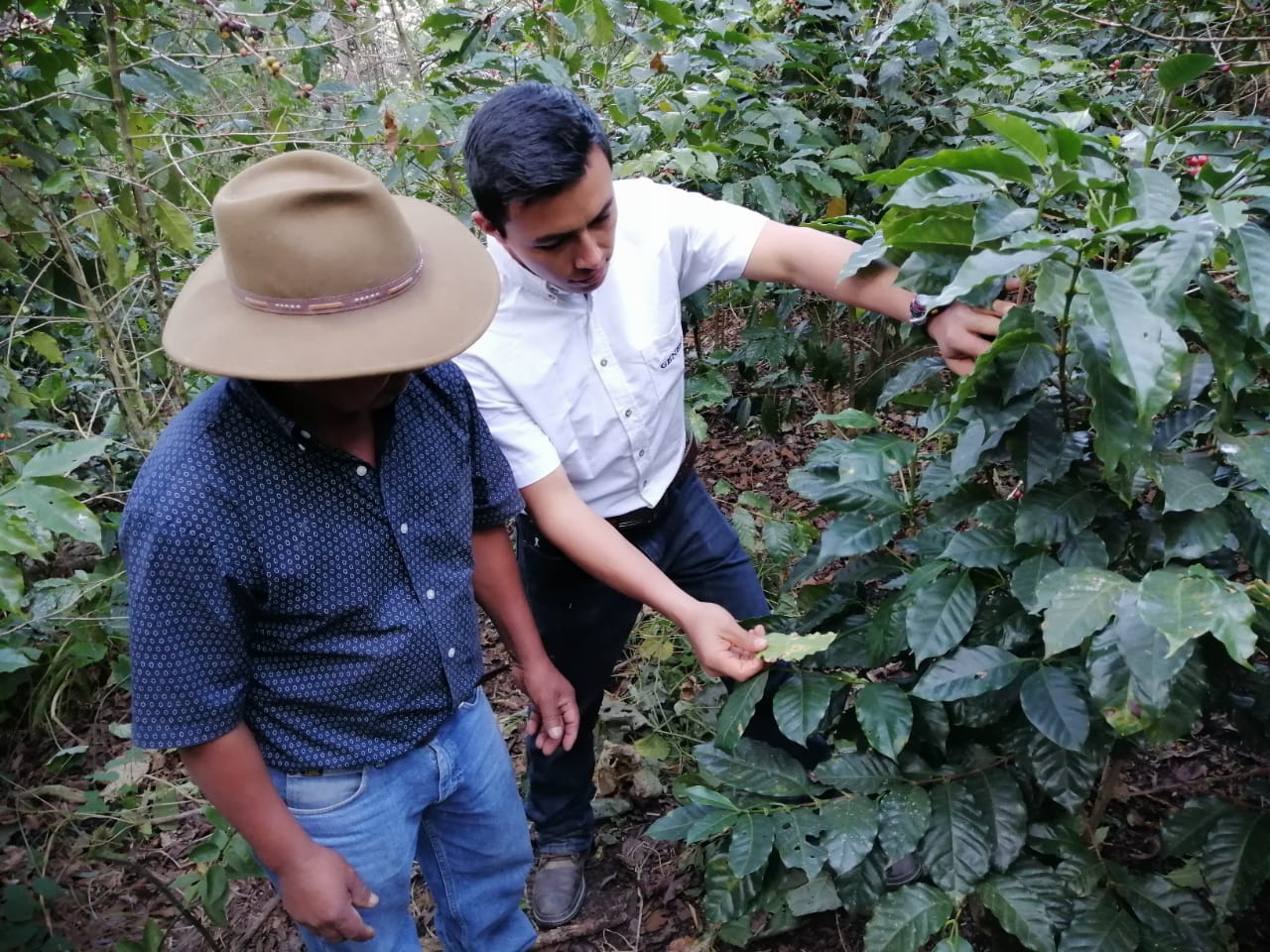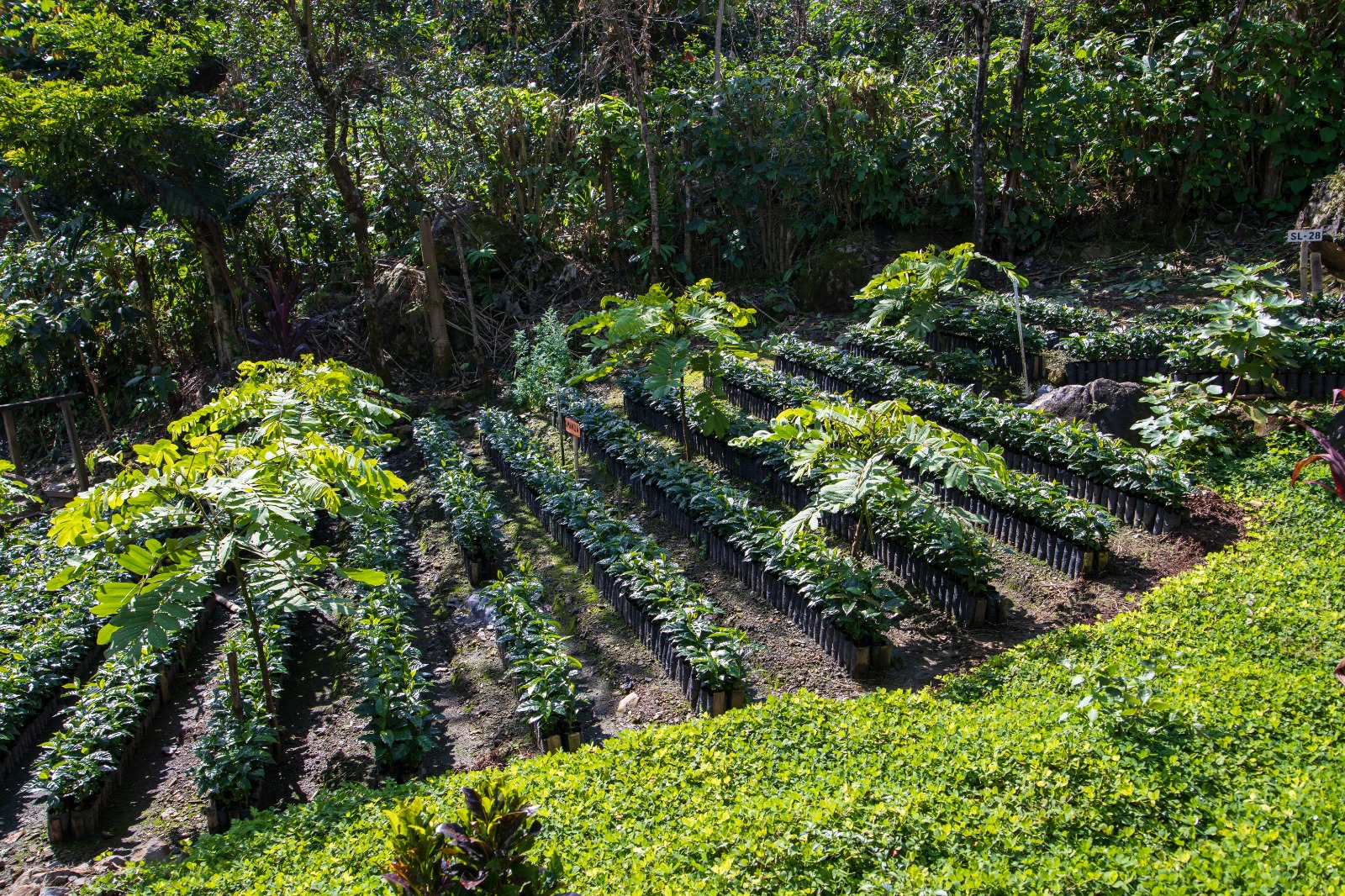
Kronotrop DARK Filtre
Kahveler

Kırmızı orman meyveleri, greyfurt, siyah çay, çikolata ve karamela
250G
19.51£
QAWALE, Guatemala’nın La Libertad, Huehuetenango bölgesindeki küçük ve orta ölçekli kahve üreticilerini kapsayan, Vides58 çatısı altındaki sosyal ve tarımsal bir projedir. Proje, Carlos Gómez ve Silvano Hidalgo liderliğinde, deniz seviyesinden 1.550 ila 1.850 metre yükseklikte faaliyet göstermektedir. QAWALE, başlangıçta Guatemala'dan 1.000 kahve üreticisinin oluşturduğu bir çekirdek grupla başlamış olup, her yıl üye sayısı artmaktadır. Proje, bu üreticilere teknik ve finansal destek sağlamaktadır; bu destekler arasında fiyat riski yönetimi ve çeşitlendirme programları da yer almaktadır. Vides58’e bağlı ziraat mühendisleri, QAWALE üreticilerine sürekli danışmanlık hizmeti sunmaktadır.
Projede görev yapan 7 daimî ziraat mühendisi, kahve üreticilerine doğrudan destek vermektedir. Küçük ve orta ölçekli üreticilerin karşılaştığı başlıca zorluklar, fiyat dalgalanmalarına karşı hassasiyet ve girdi maliyetlerindeki artıştır. Bu zorluklara karşı koymak amacıyla üreticiler, üretimi artıracak makinelerle yatırımlar yapmakta ve aynı zamanda ürün çeşitliliğini artırmaktadır.
QAWALE programı, katılımcı kahve üreticilerinin sosyal ve çevresel girişimlerinin merkezinde yer almaktadır. Program, sürdürülebilir uygulamaları desteklemekte ve toplumsal kalkınmayı teşvik etmektedir.
Her bir kahve üreticisi ortalama 3 hektarlık bir alanı yönetmekte ve yıllık ortalama 3.000 kilogram yeşil kahve üretmektedir. Yetiştirilen kahve çeşitleri arasında Caturra, Sarchimor, Bourbon ve Catuaí bulunmaktadır. Hasat sezonu, çiftliğin rakımına bağlı olarak genellikle Aralık ile Nisan ayları arasında gerçekleşmektedir. Yıl boyunca zararlılar için tuzaklar kurulmakta, pas hastalığına karşı mücadele ise kirazların üçüncü hasadından sonra başlamaktadır. Budama işlemleri, Şubat ile Ekim ayları arasında ANACAFE programına uygun olarak yapılmaktadır. Gübreleme, Mart ile Ekim ayları arasında üç kez, toprak analizine göre belirlenen formülle gerçekleştirilir. Kullanılan gübre karışımı, %60 kimyasal ve %40 doğal bileşenlerden oluşur ve ortalama %3 organik madde içerir. Yabancı ot kontrolü ise Mart ile Kasım arasında yapılır; bu sayede hasat ve gübreleme gibi diğer işlemler için çiftlik alanlarına erişim sağlanır. Yeni kahve fideleri genellikle Nisan ile Haziran aylarında, yağmur mevsiminin başlangıcına denk gelecek şekilde dikilir.
QAWALE'de kahve işleme süreci titizlikle yönetilmektedir. Kahveler, olgunluk ve Brix seviyelerine göre elle toplanır. Hasattan sonra, toplama torbalarında 24 saatlik ön fermantasyon süreci uygulanır. Ardından kahve tartılır, ayıklanır, kabuğu soyulur ve iklime bağlı olarak 15 ila 24 saat arası fermente edilir. Kurutma süreci 15 ila 18 gün sürer ve kahve, eşit kuruma sağlamak amacıyla düzenli olarak hareket ettirilir. İşlem tamamlandıktan sonra kahve, çiftliğin deposunda naylon çuvallarda muhafaza edilir. Numuneler alınarak kalite laboratuvarında test edilir; ardından kahve yaklaşık iki hafta sonra kuru işleme tesisine gönderilir ve tüm süreci izlenebilir şekilde takip edilir.
QAWALE üreticileri, su yönetiminde sürdürülebilirlik ve verimliliğe odaklanmaktadır. Sulama yalnızca fidanlıkta yapılmakta ve her bitki için minimum su kullanılmaktadır. Kahve işleme sürecinde kullanılan su ise, filtreler ve doğal bariyerlerle arıtıldıktan sonra tekrar kullanılır ve bu uygulamalar ulusal su arıtma standartlarına uygundur.
QAWALE üreticileri, su yönetiminde sürdürülebilirlik ve verimliliğe odaklanmaktadır. Sulama yalnızca fidanlıkta yapılmakta ve her bitki için minimum su kullanılmaktadır. Kahve işleme sürecinde kullanılan su ise, filtreler ve doğal bariyerlerle arıtıldıktan sonra tekrar kullanılır ve bu uygulamalar ulusal su arıtma standartlarına uygundur.
Zararlı ve hastalık yönetimi, salgınları önlemek amacıyla düzenli izleme ile proaktif biçimde yapılmaktadır. Üreticiler, hava koşullarına göre bitkilerin hassasiyetini tahmin etmek için çiçeklenme endeksi kullanmaktadır. Kahvenin izlenebilirliği titizlikle sağlanmakta; yetiştiricilikten ihracata kadar tüm adımlar, saat ve tarih bilgileriyle birlikte yazılıma kaydedilmektedir. Bu sistem aynı zamanda Rainforest Alliance grup sertifikasyonu standartlarıyla uyumludur.
Kahveye ek olarak QAWALE üreticileri; sebze, ağaç, mantar ve bitki gibi başka ürünler de yetiştirmektedir. İklim değişikliği, özellikle sıcaklık ve yağış dağılımı açısından kahve üretimi üzerinde büyük bir etki yaratmıştır. Üreticiler bu duruma uyum sağlamak için, mevcut iklim koşullarına göre tarım faaliyetlerini yönlendiren bir çiçeklenme endeksi geliştirmiştir.
Finansal olarak, QAWALE üreticilerinin en büyük zorluğu, üretim maliyetlerini borsanın tarihsel ortalama fiyatların altında tutmaktır. Şu anda üreticiler, çiftliklerine yeniden yatırım yapabilmektedir; ancak mali istikrarları, borsadaki fiyat dalgalanmalarına oldukça bağlıdır.

Bölge: La Libertad, Huehuetenango
İstasyon: Qawale
İrtifa: 1550 - 1850 m
Tür: Caturra, Bourbon ve Catuaí
İşlem: Yıkanmış ve güneşte kurutulmuş
Hasat: 2025
Tadım Notları;
Kırmızı orman meyveleri, greyfurt, siyah çay, çikolata ve karamela

890₺ üzeri siparişe ücretsiz kargo
Sepetiniz boş
Alışverişe BaşlaToplam 0,00₺
Satın Al